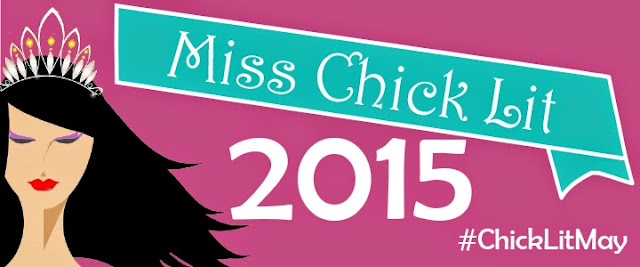Fighting an Epidemic One Back at a Time
It seems to me that stories of the heroin epidemic are all over the news. From the allowance of every pharmacy in New York state to carry Narcan over the counter to the proposal of a heroin clinic in Ithaca that is staffed by licensed medical personnel (so that addicts can receive medical attention so they don't die while shooting up), the war on heroin is dominating the news coverage. 20/20 is running a special on it tonight, and a few weeks ago, I watched PBS's Frontline special, Chasing Heroin, about the measures being taken in Seattle to combat heroin.
I've never been addicted to drugs. I cannot speak to that. But here's what I keep gleaning from the coverage. Once someone is addicted to heroin, it is very difficult to come clean and stay clean. I'm not convinced that daily methadone is any better.
The other fact I keep hearing. Four out of five heroin addicts started with prescription narcotics. Let me say that again. FOUR OUT OF FIVE started with prescription pills.
Our medical system is broken, and this heroin crisis is a by-product of it. Fragmented, sequestered medical care that looks only at body systems and not the whole person. Physicians who won't refer to other fields, lest they be cut out of the loop financially. Big pharma pushing, encouraging, bribing. Patients get trapped in a downward spiral of doctor's visits, medications, diagnostic imaging.
This post may be biased. I am a physical therapist. I have eight years of college education and passed a state board exam in the field of treating dysfunction. That's what physical therapists do. We treat dysfunction. What is the largest symptom of dysfunction? Pain.
Why do people take narcotics? Pain
What leads to heroin use in 4 out of 5 heroin addicts? Pain pills.
Do we see a correlation here?
Studies have shown that early referral to physical therapy reduces medical costs in terms of follow up diagnostic imaging, spinal injections, and surgeries. If people are feeling better quicker, they will not need to take narcotics. If people are feeling better and do not have to have surgery, they will not need to take narcotics.
I know there is a time and place for prescription pain pills. There are some cases that narcotics are needed, like in post-surgical cases. However, I firmly believe that both the patients and the physicians are to blame in the growing crisis of narcotic addiction. The patients who want a quick fix, that magic pill. Physicians who are too eager to write that script for the quick fix.
What would happen if we shift our thinking when we hurt our backs (or shoulders or knees)? What if instead of visit upon visit to physicians and specialists, we went right to PT? Only 17 states have unrestricted direct access to physical therapy (meaning there is no physician referral/prescription needed). The other 33 states have limited or provisional access. Here's the catch: even though your state may have direct access to physical therapy, your insurance company most likely will still require you to have a physician referral otherwise they won't cover it. Additionally, in many states, physical therapy services are charged as a Specialist fee, which often means higher co-pays, and can be cost prohibitive for patients.
What if instead of relying on a little pill, we took a look at our lifestyles and made changes to make our bodies function better?
You know, going to the physical therapist a few times a week and making lifestyle modifications may seem like a pain in the neck, but as compared to life as a heroin addict, it seems like a no brainer.
I'm not naive enough to think that physical therapy is the cure for the heroin epidemic. It's not that simple. But we have to start somewhere, doing something. Allowing children to buy Narcan OTC so they can save their friends from overdosing is not the answer. We need to look at the root causes, and start there.
So, the next time you are hurting, instead of asking your physician for a prescription for pills, ask him or her if a referral to PT might be a better plan.
I've never been addicted to drugs. I cannot speak to that. But here's what I keep gleaning from the coverage. Once someone is addicted to heroin, it is very difficult to come clean and stay clean. I'm not convinced that daily methadone is any better.
The other fact I keep hearing. Four out of five heroin addicts started with prescription narcotics. Let me say that again. FOUR OUT OF FIVE started with prescription pills.
Our medical system is broken, and this heroin crisis is a by-product of it. Fragmented, sequestered medical care that looks only at body systems and not the whole person. Physicians who won't refer to other fields, lest they be cut out of the loop financially. Big pharma pushing, encouraging, bribing. Patients get trapped in a downward spiral of doctor's visits, medications, diagnostic imaging.
This post may be biased. I am a physical therapist. I have eight years of college education and passed a state board exam in the field of treating dysfunction. That's what physical therapists do. We treat dysfunction. What is the largest symptom of dysfunction? Pain.
Why do people take narcotics? Pain
What leads to heroin use in 4 out of 5 heroin addicts? Pain pills.
Do we see a correlation here?
Studies have shown that early referral to physical therapy reduces medical costs in terms of follow up diagnostic imaging, spinal injections, and surgeries. If people are feeling better quicker, they will not need to take narcotics. If people are feeling better and do not have to have surgery, they will not need to take narcotics.
I know there is a time and place for prescription pain pills. There are some cases that narcotics are needed, like in post-surgical cases. However, I firmly believe that both the patients and the physicians are to blame in the growing crisis of narcotic addiction. The patients who want a quick fix, that magic pill. Physicians who are too eager to write that script for the quick fix.
What would happen if we shift our thinking when we hurt our backs (or shoulders or knees)? What if instead of visit upon visit to physicians and specialists, we went right to PT? Only 17 states have unrestricted direct access to physical therapy (meaning there is no physician referral/prescription needed). The other 33 states have limited or provisional access. Here's the catch: even though your state may have direct access to physical therapy, your insurance company most likely will still require you to have a physician referral otherwise they won't cover it. Additionally, in many states, physical therapy services are charged as a Specialist fee, which often means higher co-pays, and can be cost prohibitive for patients.
What if instead of relying on a little pill, we took a look at our lifestyles and made changes to make our bodies function better?
You know, going to the physical therapist a few times a week and making lifestyle modifications may seem like a pain in the neck, but as compared to life as a heroin addict, it seems like a no brainer.
I'm not naive enough to think that physical therapy is the cure for the heroin epidemic. It's not that simple. But we have to start somewhere, doing something. Allowing children to buy Narcan OTC so they can save their friends from overdosing is not the answer. We need to look at the root causes, and start there.
So, the next time you are hurting, instead of asking your physician for a prescription for pills, ask him or her if a referral to PT might be a better plan.



Comments
Post a Comment